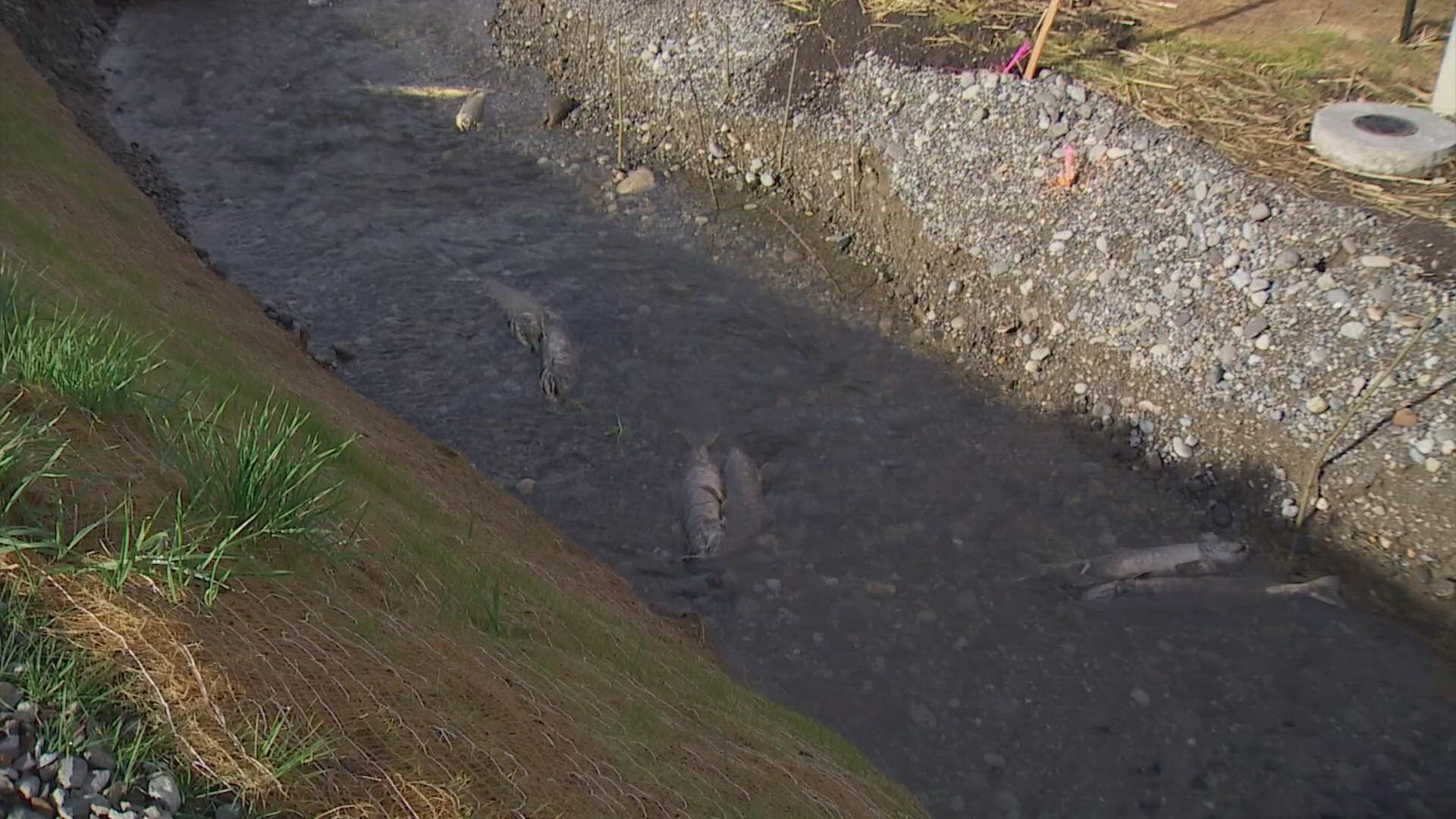Rockfish in Puget Sound are disappearing at an alarming rate, down 70 percent over the last four decades. Scientists are now pairing up with recreational anglers to try to stop the trend.
One study focuses on reducing rockfish bycatch when fishermen are out looking for other species. Rockfish are protected in Puget Sound and are not legal to take home, but fishers often accidentally catch them when trying to hook species that live at the same depths like lingcod.
"Rockfish are a really important part of the Sound," said Captain Steve Kesling of Adventure Charters.
Kesling's boat was the site of the latest fieldwork, testing three different kinds of lingcod bait to see which catches the least rockfish: frozen herring, live large flat fish or artificial lures.
With frozen herring, they caught 16 rockfish and zero lingcod in 90 minutes.
With live flat sanddabs, anglers caught just two rockfish and just three lingcod in the same 90 minutes.
The artificial lures caught three rockfish and just one lingcod.
Scientists plan a total of 42 fishing days to test the bait options.
"We want to reduce as much mortality on this species as possible," Kelly Andrews said.
Andrews is a research fisheries biologist with Northwest Fisheries Science Center working to figure out how fishermen can stop accidentally hooking rockfish. The fish live deep in the water and have swim bladders that expand when brought up to the surface quickly. It can expand so big, their stomachs are pushed out of their mouths and their eyeballs out of the socket.
"When you catch a fish really deep and bring it up that swim bladder just expands like a balloon," Andrews said. "Then when you get it up to the surface and can't keep it, you need to release it, but with that balloon the fish doesn't have the strength to get to the bottom on its own."
Fishers are now required to have what's called a descender to force them back down where their swim bladder will recompress. Without the descenders, the rockfish die.
Rockfish can live to be more than 120 years old and don't reproduce until their late teenage years. Once they're lost, it will be tough to get them back.
That worries Kesling who's been fishing here for more than 40 years.
"In that time, I've seen the limits on rockfish, what was quite a bountiful fishery, get reduced from 15 to 12 to 10 to eight, to five, three, one and zero rockfish. Hopefully, through studies like this and conservation of rockfish, we'll see these fish rebound and one day my grandchildren will be fishing for them again," he said.

